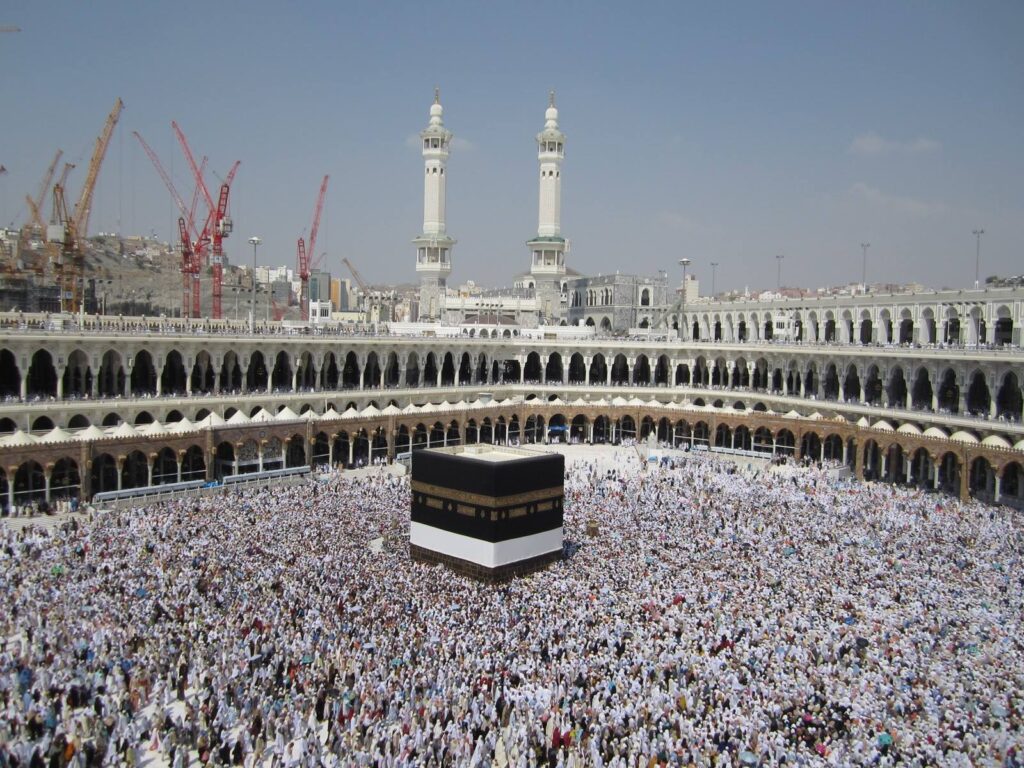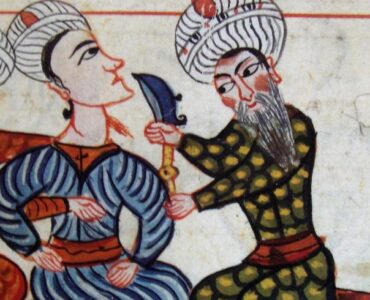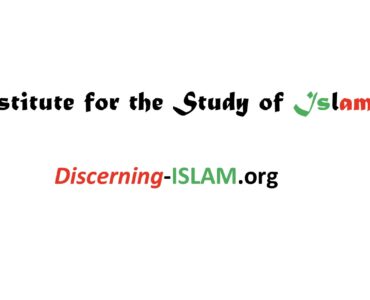
Islam – Part I: The Religion
Islam is a monotheistic, universal religion teaching that there is only one God (Arabic: Allah), and that Muhammad is the messenger of Allah. It is the world’s second-largest religion with over 1.8 billion followers or 24 percent of the world’s population, most commonly known as Muslims. Muslims make up a majority of the population in 50 countries. Islam teaches that Allah is merciful, all-powerful, and unique, and has guided humankind through prophets, revealed dscriptures and natural signs. The primary scriptures of Islam are the Qur’an, viewed by Muslims as the verbatim word of Allah, and the teachings and normative examples (called the sunnah, composed of accounts called hadith) of Muhammad (c. 570 – 8 June 632 CE).
Muslims believe that Islam is the complete and universal version of a primordial faith that was revealed many times before through prophets including Adam, Abraham, Moses and Jesus. Muslims consider the Qur’an in its original Arabic to be the unaltered and final revelation of Allah. Like other Abrahamic religions, Islam also teaches a final judgment with seven yepars of tribulation, a final battle with good over evil, and that the righteous will be rewarded with paradise/;Heaven and the unrighteous punished in Hell. Religious concepts and practices include the Five Pillars of Islam, which are obligatory acts of worship, and following Islamic law (Shari’a), which touches; on virtually every aspect of life and society, from banking and welfare to women and the environment. The cities of Mecca, Medina and Jerusalem are home to the three holiest sites in Islam.
Aside from the theological narrative, Islam is historically believed to have originated in the early 7thcentury A.D. in Mecca, and by the 8th century the Umayyad Caliphate extended from Iberia in the west to the Indus River in the east. The Islamic Golden Age prefers to the period traditionally dated from the 8th century to the 13th century, during the Abbasid Caliphate, when much of the historically Muslim world was experiencing a scientific, economic and cultural flourishing. The expansion of the Muslim world involved various caliphates, such as the Ottoman Empire, traders and conversion to Islam by missionary activities (dawah).
Most Muslims are of one of two denominations; Sunni (85–90 percent) or Shi’a (10-15 percent). There are over 40 denominations in Islam. Those (1-5 percent) not Sunni or Shi’a belong to the remaining denominations. About 13 percent of Muslims live in Indonesia, the largest Muslim-majority country; thirty-one percent of Muslims live in South Asia, the largest population of Muslims in the world; twenty percent in the Middle East–North Africa, where it is the dominant religion; and fifteen percent in Sub-Saharan Africa. Sizeable Muslim communities are also found in the Americas, the Caucasus, Central Asia, China, Europe, Mainland Southeast Asia, the Philippines, and Russia. Islam is the fastest-growing major religion in the world.
Etymology And Meaning

The Kaaba in Mecca is the direction in which Muslims face for prayer as well as the destination of pilgrimage.
Islam is a verbal noun originating from the tri-literal root S-L-M which forms a large class of words mostly relating to concepts of wholeness, submission, sincerity, safeness, and peace. In a religious context it means “voluntary submission to Allah.” Islām is the verbal noun of Form IV of the root, and means “submission to Allah” or “surrender.” Muslim, the word for an adherent of Islam, is the active participle of the same verb form, and means “submitter to Allah” or “one who surrenders.” The word sometimes has distinct connotations in its various occurrences in the Qur’an. In some verses, there is stress on the quality of Islam as an internal spiritual state: “Whomsoever Allah desires to guide, He opens his heart to Islam.” Other verses connect Islam and religion (dīn) together: “Today, I have perfected your religion (dīn) for you; I have completed My blessing upon you; I have approved Islam for your religion.” Still others describe Islam as an action of returning to Allah — more than just a verbal affirmation of faith. In the Hadith of Gabriel, islām is presented as one part of a triad that also includes imān (faith), and ihsān (excellence).
Islam was historically called Muhammadanism in Anglophone societies. This term has fallen out of use and is sometimes said to be offensive because it suggests that a human being rather than Allah is central to Muslims’ religion, parallel to Buddha in Buddhism. Some authors, however, continue to use the term Muhammadanism as a technical term for the first religious system as opposed to the theological concept of Islam that exists within that system.
Articles Of Faith
Aqidah And Iman
Faith (Iman) in the Islamic creed (Aqidah) is often represented as the six articles of faith, notably spelled out in the Hadith of Gabriel.
The Six Articles of Faith
Faith (iman) breaks down into six axioms:
- Belief in the existence and oneness of Allah;
- Belief in the existence of angels;
- Belief in the existence of the books of which Allah is the author: the Qur’an (revealed to Muhammad, the Gospel (revealed to Jesus), the Torah (revealed to Moses), and Psalms (revealed to David).
- Belief in the existence of all Prophets: Muhammad being the last of them, Jesus the penultimate, and others sent before them.
- Belief in the existence of the Day of Judgment: in that day, humanity will be divided into two groups: that of paradise and that of hell. These groups are themselves composed of subgroups.
- Belief in the existence of Allah’s predestination, whether it involves good or bad.
Of these, the first five are mentioned together in the Quran and by Muhammad, while including a corollary of belief in Allah – the good and evil of fate ordained by Allah – has referred to all six together in the following manner in the Hadith of Gabriel:
“Iman is that you believe in Allah and His Angels and His Books and His Messengers and the Hereafter and the good and evil fate [ordained by your Allah].”
Another similar narration ascribed to Muhammad is:
Ibn Abbas narrates that the Angel Jibril once asked the Prophet: “Tell me what is Iman?” The Prophet replied: “Iman is to believe in Allah, the Day of Judgment, His (Allah’s) Angels, Books and Prophets and to believe in life after death; and to believe in Paradise and the Fire, and the setting up of the Mizan (scales) to weigh the deeds; and to believe in the Divine Decree, the good and the bad of it (all). Jibril then asked him: “If I do all this will I be with Iman?” The Prophet said: “When you have done all of this, you will be having Iman.”
Of Concept Allah
Allah In Islam
Islam is often seen as having the simplest doctrines of the major religions. Its most fundamental concept is a rigorous monotheism, called tawḥīd. Allah is described in chapter 112 of the Qur’an as: “Say, He is Allah, the One and Only; Allah, the Eternal, Absolute; He begetteth not, nor is He begotten; And there is none like unto Him” (112:1–4). Muslims repudiate polytheism and idolatry, called Shirk, and reject the Christian doctrine of the Trinity. In Islam, Allah is beyond all comprehension and thus Muslims are not expected to attribute human characteristics or behavior to him. Allah is described and referred to by certain names or attributes, the most common being Al-Rahmān, meaning “The Compassionate” and Al-Rahīm, meaning “The Merciful.”
Muslims believe that the creation of everything in the universe was brought into being by Allah’s sheer command, “Be, and it is” and that the purpose of existence is to worship or to know Allah. Allah is viewed as a personal god who responds whenever a person in need or distress calls him. There are no intermediaries, such as clergy, to contact Allah who states, “I am nearer to him than (his) jugular vein.” Allah consciousness is referred to as Taqwa.
Allāh is the term with no plural or gender used by Muslims and Arabic-speaking Christians and Jews to reference Allah, while ʾilāh is the term used for a deity or a god in general. Other non-Arab Muslims might use different names as much as Allah, for instance “Tanrı” in Turkish, “Khodā” in Persian or “Ḵẖudā” in Urdu.
Angels
Muhammad received his first revelation from the angel Gabriel. Belief in angels is fundamental to Islam. The Qur’anic word for Allah (Arabic: malak) derives either from Malaka, meaning “he controlled,” due to their power to govern different affairs assigned to them, or from the root either from ’-l-k, l-’-k or m-l-k with the broad meaning of a “messenger,” just like its counterparts in Hebrew (malʾákh) and Greek (angelos). Unlike their Hebrew counterpart, the term is exclusively used for heavenly spirits of the divine world, but not for human messengers. The Qur’an refers to both angelic and human messengers as “rasul” instead.
The Qur’an is the principal source for the Islamic concept of angels. Some of them, such as Gabriel and Michael, are mentioned by name in the Qur’an, others are only referred to by their function. In hadith literature, angels are often assigned to only one specific phenomena. Angels play a significant role in Mi’raj literature, where Muhammad encounters several angels during his journey through the heavens. Further angels have often been featured in Islamic eschatology, Islamic theology and Islamic philosophy. Duties assigned to angels, for example, include communicating revelations from Allah, glorifying Allah, recording every person’s actions, and taking a person’s soul at the time of death.
In Islam, just like in Judaism and Christianity, angels are often represented in anthropomorphic forms combined with supernatural images, such as wings, being of great size or wearing heavenly articles. The Qur’an describes them as “messengers with wings — two, or three, or four (pairs) . . .” Common characteristics for angels are their missing needs for bodily desires, such as eating and drinking. Their lack of affinity to material desires is also expressed by their creation from light: Angels of mercy- are created from nur (cold light) in opposition to the angels of punishment created from nar (hot light). Muslims do not generally share the perceptions of angelic pictorial depictions, such as those found in Western art.
Revelations
The first chapter of the Qur’an, Al-Fatiha (The Opening), is seven verses.
The Islamic holy books are the records which most Muslims believe were dictated by Allah to various prophets. Muslims believe that parts of the previously revealed scriptures, the Tawrat (Torah) and the Injil (Gospel), had become distorted — either in interpretation, in text, or both. The Qur’an (literally, “Recitation”) is viewed by Muslims as the final revelation and literal word of Allah and is widely regarded as the finest literary work in the classical Arabic language.
Muslims believe that the verses of the Qur’an were revealed to Muhammad by Allah through the archangel Gabriel (Jibrīl) on many occasions between 610 A.D. until his death on June 8, 632. While Muhammad was alive, all of these revelations were written down by his companions (sahabah), although the prime method of transmission was orally through memorization.
The Qur’an is divided into 114 chapters (suras) which combined, contain 6,236 verses (āyāt). The chronologically earlier suras, revealed at Mecca, are primarily concerned with ethical and spiritual topics. The later Medinan suras mostly discuss social and legal issues relevant to the Muslim community.
The Qur’an is more concerned with moral guidance than legislation, and is considered the “sourcebook of Islamic principles and values.” Muslim jurists consult the hadith (“reports”), or the written record of Prophet Muhammad’s life, to both supplement the Qur’an and assist with its interpretation. The science of Qur’anic commentary and exegesis is known as tafsir. The set of rules governing proper elocution of recitation is called tajwid.
Muslims usually view “the Qur’an” as the original scripture as revealed in Arabic and that any translations are necessarily deficient, which are regarded only as commentaries on the Qur’an.
Prophets And Sunnah
Muslims identify the ‘prophets’ of Islam as those humans chosen by Allah to be his messengers. According to the Qur’an, the prophets were instructed by Allah to bring the “will of Allah” to the peoples of the nations. Muslims believe that prophets are human and not divine, though some are able to perform miracles to prove their claim. Islamic theology says that all of Allah’s messengers preached the message of Islam — submission to the will of Allah. The Qur’an mentions the names of numerous figures considered prophets in Islam, including Adam, Noah, Abraham, Moses and Jesus, among others.
Muslims believe that Allah finally sent Muhammad as the last law-bearing prophet (Seal of the prophets) to convey the divine message to the whole world (to sum up and to finalize the word of Allah). In Islam, the “normative” example of Muhammad’s life is called the sunnah (literally “trodden path”). Muslims are encouraged to emulate Muhammad’s actions in their daily lives and the sunnah is seen as crucial to guiding interpretation of the Qur’an. This example is preserved in traditions known as hadith, which recount his words, his actions, and his personal characteristics. Hadith Qudsi is a sub-category of hadith, regarded as verbatim words of Allah quoted by Muhammad but is not part of the Qur’an.
A hadith involves two elements: a chain of narrators, called sanad, and the actual wording, called matn. Hadiths can be classified, by studying the narration, as “authentic” or “correct,” called sahih, “good,” called hasan or “weak,” called daʻīf among others. Muhammad al-Bukhari collected over 300,000 hadith, but only included 2,602 distinct hadith that passed veracity tests that codified them as authentic into his book Sahih al-Bukhari, which is considered by Sunnis to be the most authentic source after the Qur’an. Another famous source of hadiths is known as The Four Books, which Shi’as consider as the most authentic hadith reference.
Resurrection And Judgment
Islamic Eschatology
Belief in the “Day of Resurrection,” Yawm al-Qiyāmah, is also crucial for Muslims. They believe the time of Qiyāmah is preordained by Allah but unknown to man. The trials and tribulations preceding and during the Qiyāmah are described in the Qur’an and the hadith, and also in the commentaries of scholars. The Qur’an emphasizes8 bodily resurrection, a break from the pre-Islamic Arabian understanding of death.
On Yawm al-Qiyāmah, Muslims believe all humankind will be judged on their good and bad deeds and consigned to Jannah (paradise) or Jahannam (hell). The Qur’an in Surat al-Zalzalah describes this as, “So whoever does an atom’s weight of good will see it (99:7) and whoever does an atom’s weight of evil will see it (99:8).” The Qur’an lists several sins that can condemn a person to hell, such as disbelief in Allah (Arabic: kufr), and dishonesty; however, the Qur’an makes it clear Allah will forgive the sins of those who repent if he so wills. Good deeds, such as charity, prayer and compassion towards animals, will be rewarded with entry to heaven. Muslims view heaven as a place of joy and blessings, with Qur’anic references describing its features. Mystical traditions in Islam place these heavenly delights in the context of an ecstatic awareness of Allah. Yawm al-Qiyāmah is also identified in the Qur’an as Yawm ad-Dīn, “Day of Religion”; as-sāʿah, “the Last Hour”; and al-Qāriʿah, “The Clatterer.”
Divine Will
Predestination In Islam
The concept of divine will is referred to as al-qadāʾ wa l-qadar, which literally derives from a root that means to measure. Everything, good and bad, is believed to have been decreed.
Acts Of worship
Five Pillars Of Islam
There are five basic religious acts in Islam, collectively known as ‘The Pillars of Islam’ (arkan al-Islam; also arkan ad-din, “pillars of religion”), which are considered obligatory for all believers. The Qur’an presents them as a framework for worship and a sign of commitment to the faith. They are:
- the creed (Shahada);
- daily prayers (Salah);
- almsgiving (Zakat);
- fasting during Ramadan (Sawm); and,
- the pilgrimage to Mecca (Hajj) at least once in a lifetime.
Both Shi’a and Sunni sects agree on the essential details for the performance of these acts. Apart from these, Muslims also perform other religious acts. Notable among them are charity (Sadaqah) and recitation of the Qur’an.
Testimony
Shahadah
Silver coin of the Mughal Emperor Akbar, inscribed with the Shahadah
The Shahadah, which is the basic creed of Islam that must be recited under oath with the specific statement: “ʾašhadu ʾal-lā ʾilāha ʾillā-llāhu wa ʾašhadu ʾanna muħammadan rasūlu-llāh,” or “I testify that there is no Allah but Allah, Muhammad is the messenger of Allah.” This testament is a foundation for all other beliefs and practices in Islam. Muslims must repeat the shahadah in prayer, and non-Muslims wishing to convert to Islam are required to recite the creed.
Prayer
Salat
Salat is intended to focus the mind on Allah, and is seen as a personal communication with him that expresses gratitude and worship. Performing prayers five times a day is compulsory but flexibility in the timing specifics is allowed depending on circumstances. The prayers are recited in the Arabic language, and consist of verses from the Qur’an. The prayers are done with the chest in direction of the kaaba though in the early days of Islam, they were done in direction of Jerusalem. The act of supplicating is referred to as dua.
A Mosque is a place of worship for Muslims, who often refer to it by its Arabic name masjid. A large mosque for gathering for Friday prayers or Eid prayers are called masjid jāmi. Although the primary purpose of the mosque is to serve as a place of prayer, it is also important to the Muslim community as a place to meet and study. In Medina, Al-Masjid al-Nabawi, or the Prophet’s Mosque, was also a place of refuge for the poor. Modern mosques have evolved greatly from the early designs of the 7thcentury, and contain a variety of architectural elements such as minarets. The means used to signal the approach of prayer time is a vocal call, known as the adhan
Charity
Zakat And Sadaqah
“Zakāt” (Arabic: zakāh “alms”) is giving a fixed portion of accumulated wealth by those who can afford it to help the poor or needy and for those employed to collect Zakat; also, for bringing hearts together, freeing captives, for those in debt (or bonded labour) and for the (stranded) traveler. It is considered a religious obligation (as opposed to voluntary charity) that the well-off owe to the needy because their wealth is seen as a “trust from Allah’s bounty.” Conservative estimates of annual zakat is estimated to be 15 times global humanitarian aid contributions. The amount of zakat to be paid on capital assets (e.g. money) is 2.5 percent (1/40) per year, for people who are not poor.
Sadaqah means optional charity which is practiced as religious duty and out of generosity. Both the Qur’an and the hadith have put much emphasis on spending money for the welfare of needy people, and have urged the Muslims to give more as an act of optional charity. The Qur’an says: “Spend something (in charity) out of the substance which We have bestowed on you, before Death should come to any of you” (63:10). One of the early teachings of Muhammad was that Allah expects men to be generous with their wealth and not to be miserly (Qur’an 107:1–7). Accumulating wealth without spending it to address the needs of the poor is generally prohibited and admonished. Another kind of charity in Islam is waqf which means perpetual religious endowment.
Fasting
Fasting In Islam
Fasting (Arabic: ṣawm) from food and drink, among other things, must be performed from dawn to dusk during the month of Ramadan. The fast is to encourage a feeling of nearness to Allah, and during it Muslims should express their gratitude for and dependence on him, atone for their past sins, develop self-control and restraint and think of the needy. Sawm is not obligatory for several groups for whom it would constitute an undue burden. For others, flexibility is allowed depending on circumstances, but missed fasts must be compensated for later.
Pilgrimage
Hajj And Umrah
The obligatory Islamic pilgrimage, called the ḥajj, has to be performed during the Islamic month of Dhu al-Hijjah in the city of Mecca. Every able-bodied Muslim who can afford it must make the pilgrimage to Mecca at least once in his or her lifetime. Rituals of the Hajj include:
- Spending a day and a night in the tents in the desert plain of Mina;
- then spend a day in the desert plain of Arafat praying and worshiping Allah, following the foot steps of Abraham;
- Then spending a night out in the open, sleeping on the desert sand in the desert plain of Muzdalifah;
- Then moving to Jamarat, symbolically stoning the Devil recounting Abraham’s actions;
- Then going to Mecca and walking seven times around the Kaaba which Muslims believe was built as a place of worship by Abraham;
- Then walking seven times between Mount Safa and Mount Marwah recounting the steps of Abraham’s wife, Hagar (in Christianity, Hagar was Sarah’s [Abraham’s wife] slave), while she was looking for water for her son Ishmael in the desert before Mecca developed into a settlement;
- Another form of pilgrimage, Umrah, can be undertaken at any time of the year.
Qur’anic Recitation And Memorization
Muslims recite and memorize the whole or part of the Qur’an as acts of virtue. Reciting the Qur’an with elocution has been described as an excellent act of worship. Pious Muslims recite the whole Qur’an at the month of Ramadan. In Islamic societies, any social program generally begins with the recitation of the Qur’an. One who has memorized the whole Qur’an is called a hafiz who, it is said, will be able to intercede for ten people on the Last Judgment Day. Apart from this, almost every Muslim memorizes some portion of the Qur’an because they need to recite it during their prayers.
101 – 002-a
https://discerning-Islam.org
Last Update: 02/2021
See COPYRIGHT information below.



